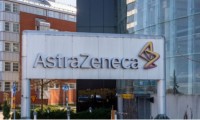-
National Resilience lines up 440 new jobs at former AstraZeneca plant in Ohio
- Source: drugdu
- 104
- December 14, 2023
-
AstraZeneca and generative AI company Absci enter $247m oncology partnership
- Source: drugdu
- 124
- December 8, 2023
-
AstraZeneca’s rare disease unit receives NICE recommendation for Wolman disease therapy in infants
- Source: drugdu
- 99
- November 30, 2023
-
AstraZeneca plans to exit ‘beating heart’ of Indian operations in Bangalore
- Source: drugdu
- 105
- November 28, 2023
-
AstraZeneca’s AKT Inhibitor Wins FDA Approval for Combo Breast Cancer Treatment
- Source: drugdu
- 129
- November 21, 2023
-
AstraZeneca’s Truqap plus Faslodex receives FDA approval for advanced breast cancer
- Source: drugdu
- 117
- November 21, 2023
-
AstraZeneca Cancer Drug Is First in Class, But FDA Nod Is Narrower Than Expected
- Source: drugdu
- 117
- November 20, 2023
-
AstraZeneca shares positive phase 3 results for Imfinzi combination in liver cancer
- Source: drugdu
- 225
- November 18, 2023
-
AstraZeneca Targets Obesity Market with Potential $2B Deal for Early GLP-1 Candidate
- Source: drugdu
- 142
- November 13, 2023
-
AbbVie, AstraZeneca, Boehringer and more face FTC’s ire for ‘improper’ patent listings
- Source: drugdu
- 93
- November 9, 2023
your submission has already been received.
OK
Subscribe
Please enter a valid Email address!
Submit
The most relevant industry news & insight will be sent to you every two weeks.













